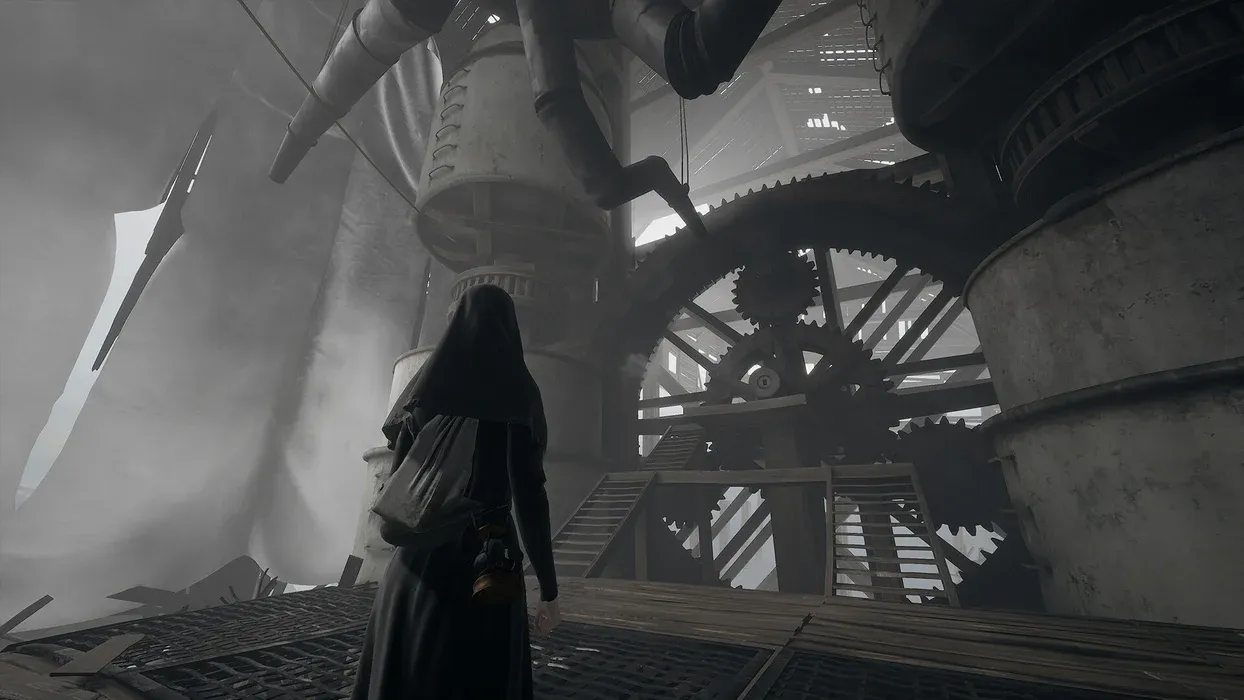Indika Review

Indika introduces you to a seemingly supernatural world, but as you dive deeper, it becomes clear that the reality is far more complex and grounded in human suffering and faith. This unique narrative adventure leaves a lasting impression, despite its occasional missteps.
A Journey into Darkness
At first glance, Indika might appear to be a standard supernatural tale, but it quickly becomes apparent that it delves into much darker and more introspective themes. Indika, the protagonist, is a young nun burdened by a history of hearing voices and witnessing hallucinatory images, such as dancing characters emerging from a priest's mouth. This ambiguity—whether these visions are the result of mental illness or genuine religious experiences—forms the crux of Indika's journey.
The story begins with Indika being sent on a quest to deliver a letter to a nearby monastery. As she ventures forth, the narrative explores themes of sin, temptation, redemption, and the often harsh influence of the Church. Indika’s character is complex; she is treated cruelly by her peers, yet she is neither innocent nor defenceless. The game doesn't shy away from violence and sexual content, reflecting the unsettling presence of the devil and the moral complexities of its world.

Narrative Strengths and Weaknesses
Indika's narrative is its strongest suit, weaving a tale that is darkly humorous, thought-provoking, and emotionally charged. The character’s journey through guilt, faith, and redemption is compelling, and the game does a fantastic job of slowly sombre her past over the four or so hours required to complete it. However, the player must follow the story with blind faith, guided through the proceedings with little ability to alter the course of the narrative.
Gameplay and Mechanics
While the narrative is strong, Indika falters in its gameplay mechanics. The game is puzzle-heavy, with most puzzles being logical and reasonable with some thought. However, the decision to gamify the experience sometimes undercuts the narrative's power. Collectibles that earn points are one example; the points mean nothing, diminishing their significance.
Additionally, Indika occasionally tries to be an action game, but the sluggish controls and movement make these sections frustrating. Precise inputs are often required, and less-than-perfect responses result in fail states and repeated attempts. These mechanics are often poorly explained or telegraphed, leading to unnecessary frustration.
The game also incorporates pixel art minigames to tell Indika’s backstory. While this makes narrative sense, the implementation can be frustrating. Replaying unskippable minigames undercuts the game's momentum and disrespects the player's time.

Visuals and Audio
Visually, Indika is impressive, blending a dark, gothic aesthetic with pixel art elements. The atmosphere is thick with a sickly aura of feebleness, perfectly capturing the game's sombre tone. The soundtrack, while generally fitting, sometimes features iconic-sounding chiptune music that feels out of place during serious sequences.

Final Thoughts
Indika is a game of contrasts. It presents a compelling and original story that is darkly humorous, thought-provoking, and emotionally shocking. However, its gameplay mechanics often hinder the experience, and its quirky elements sometimes detract from the narrative consistency. Being a strong story that might be more common in it's region, also might be lost to other regions
It’s a daring exploration of sin, faith, and redemption that stumbles in its execution but remains a thought-provoking journey.
I’m giving Indika a 7/10.
PC code provided by the publisher for review
